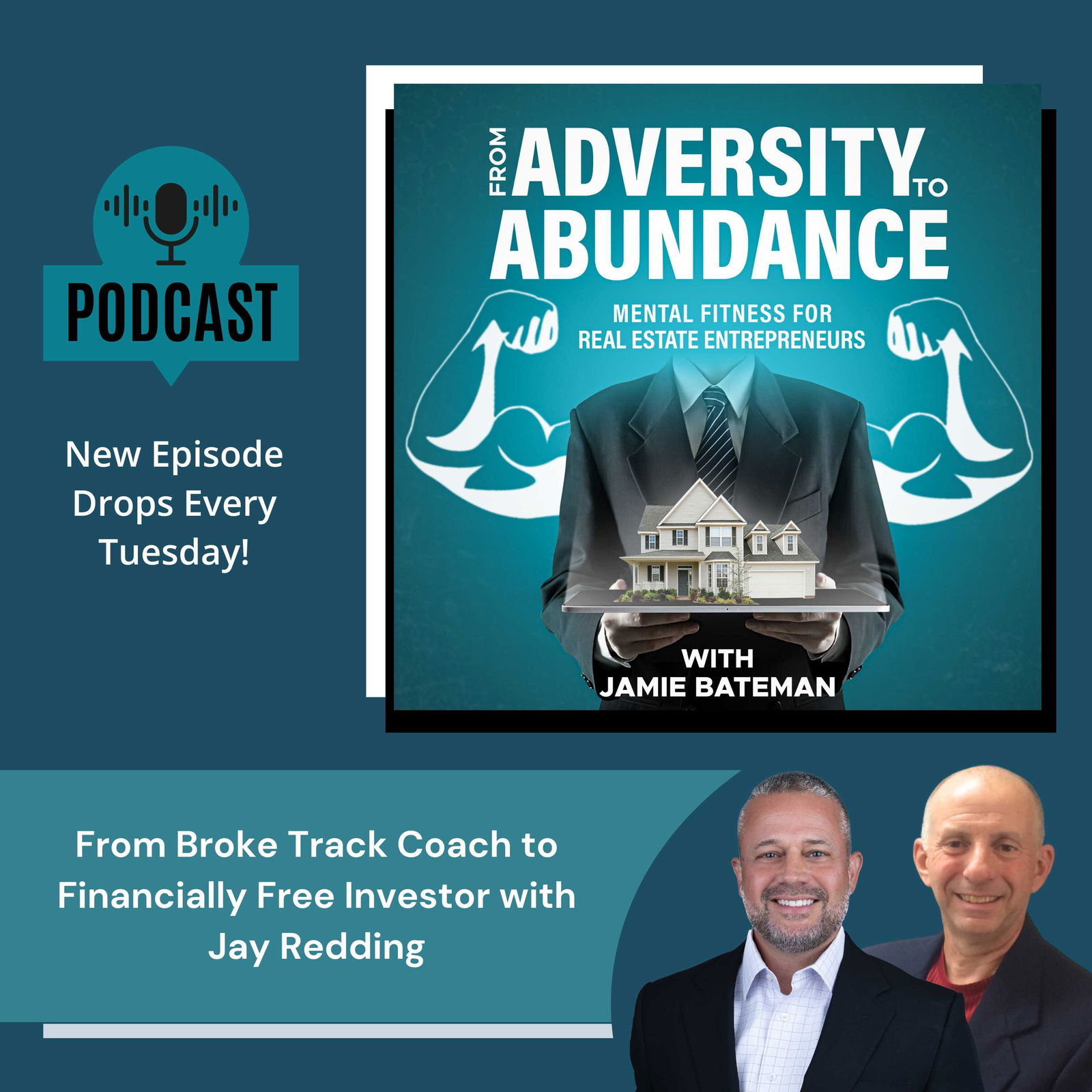In this episode of From Adversity to Abundance, host Jamie Bateman speaks with Jay Redding, a seasoned note investor, about the ins and outs of passive note investing. Jay shares his journey from coaching to the pharmaceutical industry and how he pivoted to real estate and mortgage note investing after overcoming significant personal and professional challenges.
Guest Introduction: Jay ReddingJay is a passionate investor. He and his son-in-law, Kyle Cassidy, founded Cassidy Investment Group, LLC, which focuses on buying and creating mortgage-backed notes. After a successful career in coaching and pharmaceuticals, Jay shifted to the world of real estate and note investing, focusing on building a consistent and predictable income stream for his clients. His approach is grounded in integrity, long-term thinking, and helping others achieve financial freedom.
Background StoriesJay Redding’s JourneyAfter years of coaching and a career in pharmaceuticals, Jay found himself at a crossroads when he was laid off. Turning adversity into opportunity, he entered the world of real estate and note investing, where he has since built a successful business helping others create wealth with passive income. His story is one of resilience, grit, and the ability to bounce back from life’s challenges.
Client Success StoryJay shares a powerful example of how a client, unsure about the active role of note investing, chose to passively invest with his company instead. This client, looking for consistency and predictability, found success in a more hands-off approach, enjoying regular returns without the headache of managing notes or dealing with the complexities of foreclosure processes.
Key Discussion Points- The difference between active and passive note investing and why many prefer the latter for its predictability.
- The importance of consistency in the world of note investing, likened to the “turtle” approach—slow and steady wins the race.
- How Jay transitioned from coaching to note investing and leveraged his past experiences to succeed in this new industry.
- The emotional rollercoaster of transitions and how Jay overcame professional setbacks and found his passion in note investing.
- For aspiring note investors: Starting with passive investing is a great way to dip your toes into the market while learning the ropes.
- Consistency and predictability are key in building long-term wealth; focus on steady growth rather than flashy returns.
- Embrace transitions as opportunities—sometimes a career pivot is the best way to reignite your passion and find true success.
- Always work with people of integrity. The relationships you build in business can lead to long-term, fulfilling partnerships.
- Website: www.cassidyinvestments.com
- YouTube: Cassidy Investments
- Facebook: Jay Redding
- LinkedIn: Jay Redding
- Integrity Income Fund: View Here
- Labrador Mentorship: Learn More
- Haven Financial Services: Explore More
- Purchase Jamie’s Book: Amazon Link
- Leave Us a Review: Apple Podcasts | Adversity to Abundance
Transform your podcast with a stunning website in minutes. Sign up for Podpage to effortlessly grow your audience with easy-to-use tools.
- Sign up here: www.podpage.com/?via=jamie-bateman
- Website: www.adversity2abundance.com
- Facebook: Adversity to Abundance Podcast
- Instagram: @adversitytoabundancepodcast
- LinkedIn: Adversity to Abundance Podcast
- YouTube: From Adversity to Abundance Podcast
- LinkedIn: Jamie Bateman
- Twitter: @batemanjames

